
The government may have delayed fiscal consolidation by a year as per the Union Budget, but it needs to be more aggressive on eliminating revenue deficit, says Rajat Kathuria, Director and Chief Executive at the Indian Council for Research on International Economic Relations (ICRIER), New Delhi.
He also suggests that more focus on employment generation in the Budget would have helped, since job creation has the potential to make or break India.
Excerpts from a conversation with Catch:
What according to you is the strongest point of the Union Budget?
It is the focus on rural areas. And setting the stage for the implementation of GST and a friendly tax administration.
Do you think it is a friendly tax administration at the moment?
No, that is why I said, setting the stage for it. Once you have digitised transactions and reduced the discretionary role of the tax administration, which is what the Finance Minister was speaking about, reducing the exemptions, all of this would lead to more clarity. It would be more difficult to hide transactions.
But one strong point of this Budget, if I were to just talk about one in the broad sense, is the focus on the rural sector, which, in the wake of demonetisation, was expected. And by rural, I mean agriculture, skilling, infrastructure, the Pradhan Mantri Gram Sadak Yojana, and so on.
But most of these schemes seem to be a continuation of the work of the previous government...
Yes, there is continuity. Implementation of programmes of one budget spills over to two-three budgets. That is to be expected.
There are some new programmes, there are some old programmes - like the Finance Minister himself said, 'MGNREGA was started by the previous regime, I am just giving more money to it, strengthening it'.
Especially after demonetisation, when there is so much of job loss, then you need to really strengthen the rural economy.
But are there any figures to back this claim that people have lost jobs in the wake of demonetisation? The government has not come out with any such data...
There is evidence coming out of manufacturing associations, albeit some of it is anecdotal. But some of it is more robust. People going back to their villages means that they have lost their jobs, there is evidence of that. In a long-term, secular sense, this will get finessed in the data.
What about international trade? Would the Budget help in consolidating it?
The FDI regime has been liberalised, although a lot of it was done off budget. There is talk of Make in India, customs duty revision to encourage it, to address the inverted duty structure. Electronics found a specific mention in the budget. This is a sector that could find a foothold in India. Foxconn has expressed interest in India after the problems it has been facing in China.
India suffers from other deficits like power and so on. It will take some time for these benefits to actually materialise, but there is a mention.
The Foreign Investment Promotion Board has been disbanded, which is a good thing, something which was long due. This is again an example of the endeavour to reduce discretionary powers to the government functionaries. The more the discretionary powers, you give more opportunity for rent seeking.
So, dismantling of FIPB should be looked at in the larger endeavour to reduce discretionary powers.
Is there anything that you were expecting that did not find mention in this Budget?
It might be there in the fine print, but jobs did not find an explicit mention. And jobs are a huge challenge that we face.
The government might say that we will take up this challenge outside the budget. But this challenge is something which could make or break India.
I am not talking about specific governments. We are releasing large numbers to the workforce every month, and agriculture is actually shedding people. It is not going to be a source of employment and people are going to leave agriculture and want non-farm jobs.
All in all, we are looking at about 15 million people a year seeking jobs, and you have to create these jobs. Where are these jobs going to come from? I found a vision or understanding of that missing in the budget.
The other thing is how fiscal consolidation is being delayed by a year. One can be for or against it. Now we will have fiscal consolidation in 2018-19.
One can sympathise with the government that demonetisation did have an impact, and there was a need to infuse fiscal stimulation, provide for investment and so on.
The government, however, needs to be much more aggressive on the revenue deficit than it has been. We should try and eliminate it over a period of time.


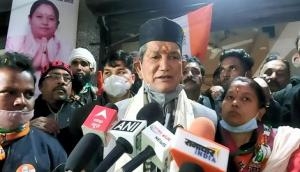
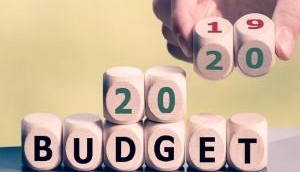
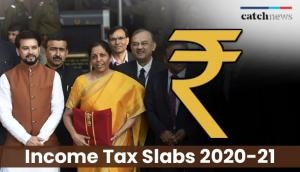
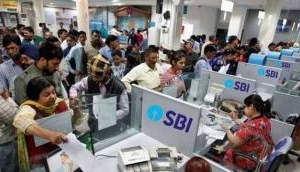
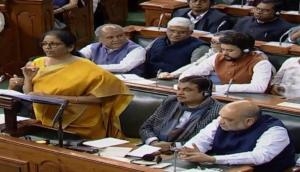
![BJP's Kapil Mishra recreates Shankar Mahadevan’s ‘Breathless’ song to highlight Delhi pollution [WATCH] BJP's Kapil Mishra recreates Shankar Mahadevan’s ‘Breathless’ song to highlight Delhi pollution [WATCH]](https://images.catchnews.com/upload/2022/11/03/kapil-mishra_240884_300x172.png)

![Anupam Kher shares pictures of his toned body on 67th birthday [MUST SEE] Anupam Kher shares pictures of his toned body on 67th birthday [MUST SEE]](https://images.catchnews.com/upload/2022/03/07/Anupam_kher_231145_300x172.jpg)






